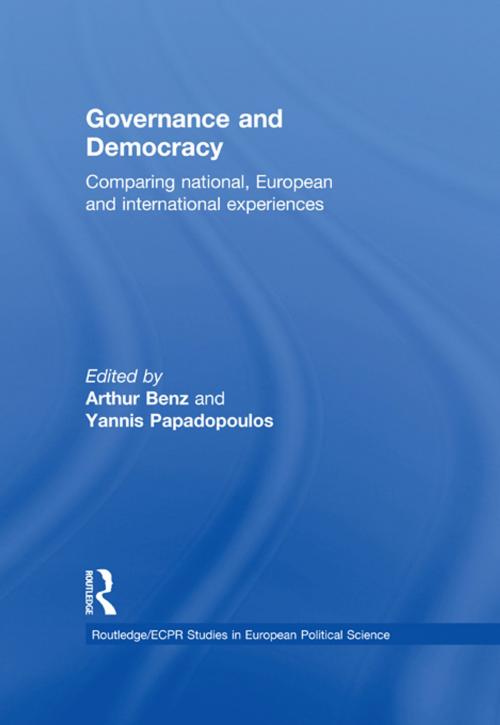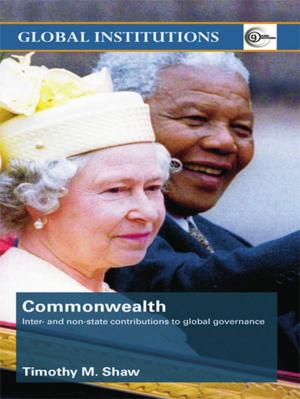Governance and Democracy
Comparing National, European and International Experiences
Nonfiction, Social & Cultural Studies, Political Science, International, Foreign Legal Systems, International Relations| Author: | ISBN: | 9781134229772 | |
| Publisher: | Taylor and Francis | Publication: | November 12, 2012 |
| Imprint: | Routledge | Language: | English |
| Author: | |
| ISBN: | 9781134229772 |
| Publisher: | Taylor and Francis |
| Publication: | November 12, 2012 |
| Imprint: | Routledge |
| Language: | English |
For the first time, this new collection brings together country specialists, researchers on the European Union, and leading international relations scholars to tackle a crucial question: how compatible are today’s new patterns of ‘policy networks’ and ‘multi-level’ governance with democratic standards?
This important question is attracting attention both in political science and in political practices. In political science, the question is mainly dealt with in separated sub-disciplines, which focus on different levels of politics. So far, no serious exchange has actually taken place between authors working on these different levels. The editors of this book – both specialists of network and multi-level governance – show that although the issue is raised differently in the institutional settings of the national state, the European Union, or transnational governance, excellent insights can be gained by comparison across these settings.
This major new contribution includes cutting edge work from junior scholars alongside chapters by leading specialists of governance such as Guy Peters, Jon Pierre, Philippe C. Schmitter and Thomas Risse. It also contains a collection of new case studies, theoretical conceptualisations and normative proposals for solutions dealing with the issue of democratic deficits, which all give the reader a better understanding of the most crucial problems and perspectives of democracy in different patterns of "governance" beyond conventional ‘government’ approaches.
This is a valuable book for policy analysts, students of the European Union and international relations, and all students in social and political science.
For the first time, this new collection brings together country specialists, researchers on the European Union, and leading international relations scholars to tackle a crucial question: how compatible are today’s new patterns of ‘policy networks’ and ‘multi-level’ governance with democratic standards?
This important question is attracting attention both in political science and in political practices. In political science, the question is mainly dealt with in separated sub-disciplines, which focus on different levels of politics. So far, no serious exchange has actually taken place between authors working on these different levels. The editors of this book – both specialists of network and multi-level governance – show that although the issue is raised differently in the institutional settings of the national state, the European Union, or transnational governance, excellent insights can be gained by comparison across these settings.
This major new contribution includes cutting edge work from junior scholars alongside chapters by leading specialists of governance such as Guy Peters, Jon Pierre, Philippe C. Schmitter and Thomas Risse. It also contains a collection of new case studies, theoretical conceptualisations and normative proposals for solutions dealing with the issue of democratic deficits, which all give the reader a better understanding of the most crucial problems and perspectives of democracy in different patterns of "governance" beyond conventional ‘government’ approaches.
This is a valuable book for policy analysts, students of the European Union and international relations, and all students in social and political science.















